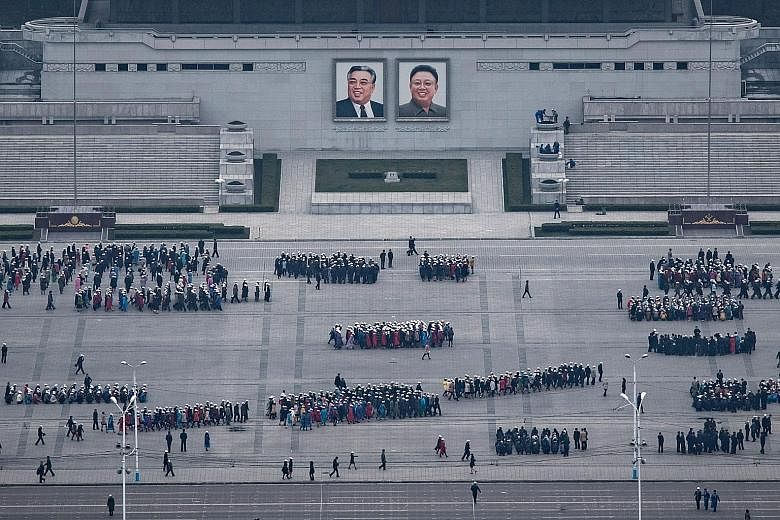With no end in sight to North Korea's nuclear and ballistic missile ambitions or a return of Japanese citizens abducted by the rogue state, Tokyo yesterday said it would extend its own sanctions against Pyongyang for two more years.
The unilateral penalties, which were first imposed in 2006, were due to expire next Thursday, and complement six sets of United Nations Security Council sanctions.
Japan's sanctions include a trade embargo and a ban on North Korean-registered ships calling at its ports except for humanitarian purposes, and on chartered flights between the two nations.
These come on top of UN sanctions that aim to choke the impoverished North into giving up its nuclear programme, via methods such as limiting coal exports and severing money flows into the country.
"We will strictly implement these measures while, under the principle of dialogue and pressure, and action for action, doing our best to achieve a comprehensive solution to the abduction, nuclear and missile issues," Foreign Minister Fumio Kishida said yesterday.
Chief Cabinet Secretary Yoshihide Suga, meanwhile, lauded the effectiveness of Japanese sanctions, saying: "In 2005, imports from North Korea to Japan were worth 15 billion yen (S$190 million) and exports 7 billion yen. But this has since been reduced to zero with the trade embargo in place."
The extension comes two days after North Korea fired what is suspected to be an extended-range Scud missile, and amid reports that it might be gearing up for a showcase of its prowess to mark the 105th anniversary of the birth of its founder Kim Il Sung next Saturday.
While some defence experts posit that Wednesday's launch had ended in failure, others caution that Pyongyang could have been testing a new form of rocket that would bring it closer towards building an intercontinental ballistic missile capable of striking the US.
Yet another longstanding issue for Japan is the North's abductions of its citizens in the 1970s and 1980s. The official list has 17 victims, but Tokyo suspects Pyongyang to be behind more unsolved disappearances. In 2014, the North agreed to reopen a probe into the missing Japanese. But it reneged on the promise in February last year as Tokyo increased sanctions in response to the North's conduct of a nuclear test a month earlier.
Defence experts such as Dr Tosh Minohara of Kobe University said Japan is caught between a rock and a hard place by way of what it is able to do to rein in North Korea.
While calling the extension of sanctions a mere symbolic gesture as they have not thwarted Pyongyang's belligerence, he said it is "the only thing that Japan can do".
"Lifting sanctions will be very inappropriate and sends a wrong signal," he said. "At the same time, nothing was strengthened and this suggests Japan is at a limit of what it can do when it comes to economic sanctions."
Even so, he said, Japan's sanctions are not watertight, pointing to the multibillion-dollar pachinko industry that operates in a legal grey area. Some parlours, he said, are run by North Korean sympathisers who can remit funds via a third country. And then there are reports of subterfuge by North Korean ships that operate under the guise of a Chinese flag, he added. "The ball really is not in (Japan's) court."

